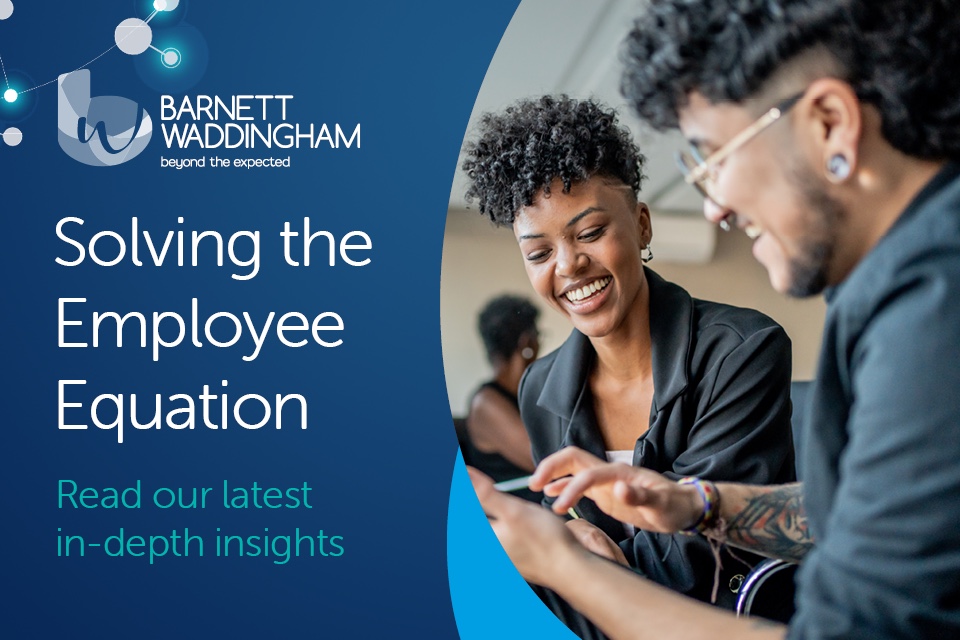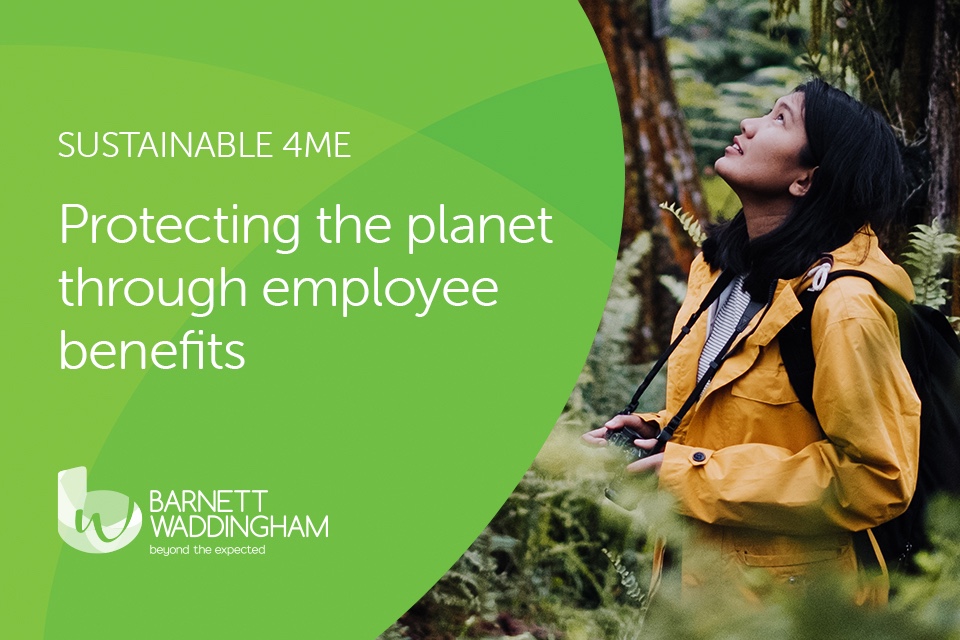By Peter Meyler, Head of HR Analytics & Consulting, Barnett Waddingham
I am not one to really dwell on the past, so it is unusual for me to be in a reflective mood at the moment. I have given myself the gift of time to really stop and think about what the Covid-19 pandemic has meant for me and others.
During our masterclass at the recent HRD | A Virtual Event, I talked about this. Covid-19 has had a profound impact on so many people to a greater or lesser degree and for different reasons related to their different situations.
So, while we have all been hit by the same storm, we have not all been in the same boat.
How have I been impacted? My daughter is 18 and suffers from a long term chronic illness. She was identified in the high risk group for contracting Covid-19, so we have been shielding her. Not nice, but not unexpected.
However, I count myself extremely fortunate to have been in a situation where I’ve been affected much less than many other people. Nobody working for Barnett Waddingham has been furloughed and I have been working very effectively from home for almost four months. This is giving me a good work life balance. I am spending more quality time with my family and not having to worry about bringing Covid-19 into the household. I have been kept well informed and engaged by my employer and they have been really interested in, and supportive of, my overall wellbeing. Indeed, the crisis has further deepened and strengthened the relationship between the company and its employees.
My reflection time then very quickly turned to others who have been far less fortunate than I have. Many people are in a different boat to mine, struggling to weather this vicious and ongoing storm. What about them?
Covid-19 and the lockdown initially united us as a nation. We knew what needed doing in order to minimise the risk to health and life. We had a new found recognition and appreciation of the health professionals trying to save lives and the other key workers supporting them — despite the significant risks this posed to their own health. It certainly felt like there was a greater sense of community, with people helping the vulnerable and also finding innovative new ways of interacting with each other.
What about work and peoples’ livelihoods? Has the crisis created a stronger bond and relationship between employers and employees and a sense of togetherness which is badly needed? This certainly isn’t the case for the 612,000 UK employees who lost their jobs between March and May and suddenly found themselves thrust into an unemployed group. It’s predicted that this group will be made up of around five million people (15% of the UK working population) over the next few months. Another nine million people (25% of the UK working population) have been furloughed under the Job Retention Scheme, which is due to end completely in October.
As well as finding out how our own employees were coping, we also ran a survey among a representative selection of UK employees at the end of April. Many were really suffering with their mental and financial health and not feeling supported by their employer.
It’s more important than ever, therefore, to regularly communicate with all employees as many will be feeling worried and anxious about their future.
One key finding from our survey is that the way employers are managing Covid-19 will have an impact on their future reputation and the likelihood that people will want to work for an organisation.
It is over two months since we conducted that survey and there have been a number of national and world events that have eroded the sense of unity and community feel that we fleetingly enjoyed as a nation. These are all reminders of the bias, inequality and discrimination that exists in society and are also mirrored in employment to a degree.
In the coming weeks and months some organisations will struggle to balance short term survival and cost containment with longer term sustainability and growth. This will be incredibly difficult for them. I encourage employers to get closer to their employees and involve them in helping to find solutions to the challenges their business is facing, rather than keeping them at arm’s length.
I am not saying employers should protect jobs that have reached their sell by date; all you are then doing is delaying an inevitable. But you should question whether this is the really case, or just an easier short term, knee-jerk reaction, when doing something else might be harder, but more beneficial in the long term.
One approach that employers can use to support employees, whilst considering long-term business sustainability, is the use of people analytics and insights. This is something we call “Employer DNA.” It’s about understanding how organisations can maximise the employment experience and the value this creates, balanced against the cost and risks involved. We take an analytically led consultative approach to our work with clients that can help organisations thrive.
If this crisis teaches business one thing it must be that current success is not necessarily a predictor of the future. Reviewing, repurposing and future-proofing customer proposition and services, business strategy & plans, employment strategy, proposition, practices and target employment operating models are strategic activities that need to be regularly on the Management Board agenda — not just something you firefight in a crisis.
These are some of the items we regularly discuss in our LinkedIn group called HR Bites Exchange — a collaborative and interactive HR community that meets regularly to share ideas and support each other.
Employers need to invest in the skills and capabilities needed for the future, equipping employees with these now so that they continue to be engaged and productive in your organisation over the long term. The alternative? You could look externally, trying to identify and recruit people with these skills and capabilities. However, that could be both difficult and expensive.
Now, more than ever, your employer brand and reputation is at a tipping point. So it is up to you which boat you want your organisation to be sailing in.
To speak to Peter about any of the topics discussed, or for employee engagement and employment experience analytics and consulting support, please call 020 7776 2232, or email peter.meyler@barnett-waddingham.co.uk









